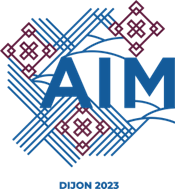Thematics, GTAIM & TRACKS > TRACK 2023 : Mobility, digital and decarbonationTrack 2023 : Mobility, digital and decarbonation
The first edition of this thematic session intends to explore the multiple links between mobility, digital technology and decarbonation, based on research with varied methodologies and open to contributions from different disciplines (from Management Sciences and beyond). The aim is, on the one hand, to look at the construction of the dynamics of decarbonisation of mobility and to identify the role of digital technology in this process and, on the other hand, to understand what these dynamics of decarbonisation can lead to for digital technology within the mobility sectors. In the first part of the study, the construction of the dynamics of decarbonisation of mobility and the identification of the role of digital in this process: Digital technology can be considered from the point of view of technical progress enabling the improvement of mobility in terms of service efficiency and a strengthening of multimodality (combination of several modes of transport such as train and bus), or even enabling the substitution of one technology for another by focusing on electrification. The mobility sector has several characteristics such as flow management, complex and large infrastructures, massive energy consumption, multiple activities, multimodality, etc. Decarbonisation of this sector implies strategies to reduce CO2 and other greenhouse gases through innovation, sobriety but also the circular economy. For example, the duplication of public facilities to produce electricity locally also favours the establishment of server farms. This thematic session thus aims to provide a forum for reflection on the burning questions posed by mobility and decarbonisation through the prism of the digital, and vice versa. A multidisciplinary approach will be favoured to allow for an understanding of the different facets of the transformations underway and to encourage exchanges between researchers from various disciplines (IS and other sub-disciplines of management sciences, engineering sciences, sociology, political sciences, ergonomics, psychology or economics, etc.). The session also intends to federate researchers around a common interest in the theme of "Mobility, Digital and Decarbonation", which could foreshadow the future creation of an AIM thematic group and the launch of collective publication projects. Themes envisaged How does decarbonised mobility relate to digital technologies? At the individual level? Collective? Track leaders Sophie Agulhon (sophie.agulhon@univ-paris8.fr) Florence Jacob (florence.jacob@univ-nantes.fr) Mohamed Haouari (mhaouari@gip-cei.com)
|


